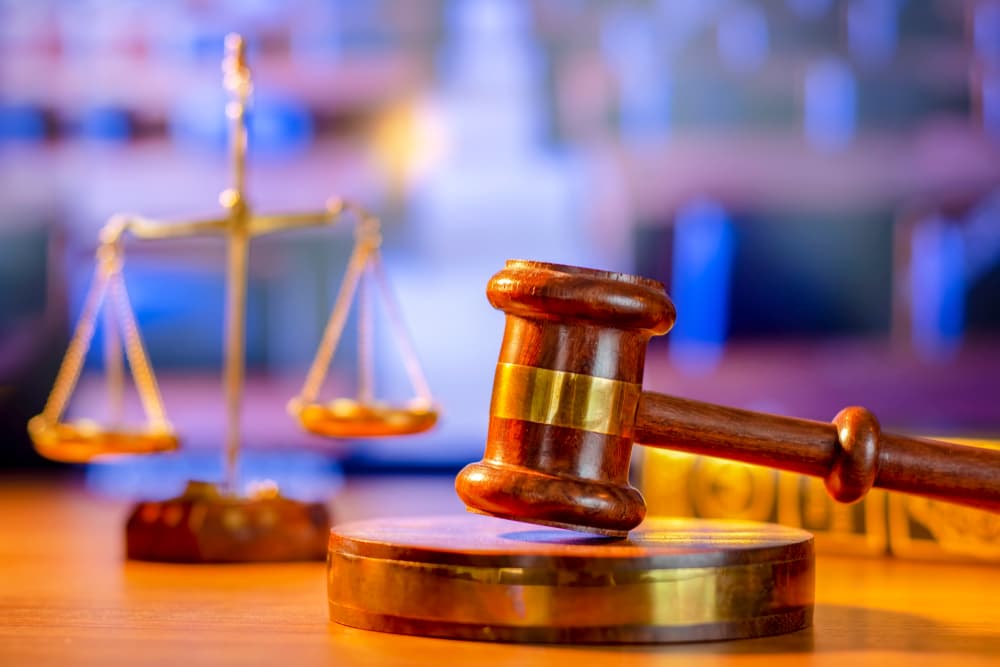Personal injury claims and lawsuits, including motor vehicle collisions, workplace accidents, and slip and falls, usually arise from others’ negligence. In most personal injury cases, an out-of-court settlement between the parties resolves the case. However, a personal injury lawyer cannot settle a case without permission from their injured client.
If the accident victim decides to settle, based on their attorney’s recommendation, they will typically sign an insurance company release, which prevents them from filing a future claim arising from the same set of circumstances. The insurance company will then forward a settlement check to the accident victim’s attorney.
An experienced personal injury lawyer can be invaluable throughout the settlement negotiation process. Moreover, if the insurance company refuses to offer sufficient compensation, an attorney may recommend litigation and file a lawsuit in court on the accident victim’s behalf.
A Personal Injury Attorney’s Advice is Critical
Insurance companies regularly make lowball settlement offers that do not even come close to covering a victim’s losses. However, adjusters might present their offers in a favorable light, trying to convince an injury victim to accept a lower amount, saving the company money.
Your attorney carefully calculates your losses and compares each offer with the economic and non-economic costs of your injuries. They advise whether a settlement is fair, so you never have to worry whether you are accepting too little. This is critical to your claim and financial future.
Types of Personal Injury Cases that Can Resolve Through Settlement

Personal injury cases cover a wide range of accidents and occurrences that harm an individual. Many of these cases can be resolved through a settlement, where the parties involved reach an agreement outside of court. Here are some common types of personal injury cases that parties might settle:
- Car Accidents – These occur when two or more vehicles collide, often resulting in injuries that range from minor to severe. Settlements in car accident cases typically cover medical expenses, property damage, and compensation for pain and suffering.
- Truck Accidents—Due to their sheer size and weight, large truck accidents can cause devastating injuries. Settlements may include compensation for medical bills, lost income, and long-term rehabilitation costs.
- Motorcycle Accidents – Motorcyclists are particularly vulnerable on the road and can suffer serious injuries in accidents. Settlements in motorcycle accident cases may address medical treatment, motorcycle repair or replacement, and compensation for lost earnings.
- Workplace Accidents – Employees who suffered an injury on the job may be entitled to compensation through a settlement with their employer or workers’ compensation insurance. These settlements often cover medical expenses, lost income, and vocational rehabilitation. Some injured workers may file a third-party claim or lawsuit for additional compensation.
- Medical Malpractice – When a healthcare provider’s negligence harms a patient, the victim may pursue a medical malpractice claim. Settlements in these cases can be complex and may include compensation for medical bills, lost income, and pain and suffering.
- Wrongful Death – If someone dies as a result of another party’s negligent or intentional actions, their family may pursue a wrongful death claim. Settlements in wrongful death cases may provide compensation for funeral expenses, loss of financial support, and emotional distress.
- Slip and Fall Accidents – Property owners have a duty to maintain safe premises for visitors. When someone suffers injuries in a slip and fall accident due to the property owner’s negligence, they may seek a settlement to cover medical bills, lost wages, and other expenses related to their injury.
How Can an Experienced Personal Injury Lawyer Help During the Settlement Process?
A personal injury attorney is crucial in helping individuals navigate the settlement process after being injured in an accident. Here’s how they can support you:
- Legal Skill and Knowledge – Personal injury attorneys are well-versed in the laws and regulations involved in local personal injury cases. They can provide strong legal advice and guidance throughout the settlement process, protecting your rights and seeking fair compensation for your injuries.
- Investigation and Evidence Gathering – Personal injury attorneys have the resources and knowledge to thoroughly investigate your accident's circumstances. They can gather important evidence, such as accident reports, witness statements, medical records, and other documentation, to support your claim and strengthen your case during settlement negotiations.
- Determining Liability – In many personal injury cases, determining liability can be complicated. An experienced attorney can identify all potentially liable parties – including a distracted driver, a careless property owner, or a negligent healthcare provider – and hold them accountable for their negligent or wrongful actions.
- Calculating Damages – Personal injury attorneys have experience calculating the full extent of your damages, including medical expenses, lost wages, property damage, and pain and suffering. They can help you accurately assess the value of your claim and negotiate for fair compensation that fully covers your losses.
- Negotiating with Insurance Companies – Dealing with insurance companies can be intimidating and overwhelming, especially when recovering from injuries. Personal injury attorneys have experience negotiating with insurance adjusters and can advocate on your behalf to secure a favorable settlement offer. They know how to counter lowball offers and negotiate for the maximum compensation you deserve.
- Litigation as a Last Resort – While many personal injury cases settle out of court, litigation is sometimes necessary to achieve a fair outcome. If negotiations fail to result in a satisfactory settlement, your attorney can represent you in court and advocate for your rights before a judge and jury.
Alternatives to Settling a Personal Injury Case
When resolving a personal injury case, there are alternatives to settling outside of court. These alternatives include a jury trial, arbitration, or mediation, each offering distinct advantages and considerations.
- Jury Trial – Opting for a jury trial means presenting your case to a judge and a jury of your peers. This process involves both sides presenting evidence, calling witnesses, and making arguments to persuade the jury. Unlike settlement negotiations, a jury trial places the decision-making power in the hands of the jurors, who will determine liability and damages based on the evidence presented. While jury trials can be time-consuming and expensive, they provide the opportunity for a fair and impartial evaluation of the case by individuals from the community.
- Arbitration – Arbitration is a form of alternative dispute resolution (ADR) where a neutral third party, known as an arbitrator, hears the arguments and evidence presented by both parties and makes a binding decision to resolve the dispute. Unlike a jury trial, arbitration is typically less formal and allows more flexibility in scheduling and procedural rules. Additionally, arbitration can be faster and more cost-effective than litigation, making it an attractive option for resolving personal injury cases. However, it’s important to note that the arbitrator’s decision is final and legally enforceable, with limited opportunities for appeal.
- Mediation—Mediation is a voluntary and confidential process in which a neutral mediator facilitates communication and negotiation between the parties to help them reach a mutually acceptable settlement. Unlike arbitration, the mediator does not make a binding decision but instead helps the parties explore options and find common ground. Mediation is often less adversarial than litigation, allowing the parties to retain more control over the case outcome. Additionally, mediation can be more cost-effective and efficient than going to trial, as it encourages cooperation and compromise between the parties.
An experienced personal injury lawyer can determine whether pursuing litigation may be preferable to settlement in your case.
Types of Settlement Damages an Accident Victim May Recover
In a personal injury claim or lawsuit, accident victims may be eligible to recover damages to compensate for their losses. These damages should address both the economic and non-economic effects of accident-related injuries. Here are the main types of settlement damages available:
- Compensation for Related Medical Expenses – This includes compensation for all past and future medical treatment related to the injury, such as hospital bills, doctor’s visits, medical procedure costs, medication costs, and rehabilitation services. The goal is to ensure that the victim receives adequate medical care without bearing the financial burden themselves.
- Lost Wages – If the injury prevents the victim from working, they may be entitled to compensation for lost earnings. Additionally, if the injury affects the victim’s ability to work in the future, they may be eligible for loss-of-earning-capacity damages.
- Pain and Suffering – Pain and suffering damages compensate the victim for the physical pain, discomfort, and emotional distress they have endured as a direct result of their injury. This can include not only their immediate pain and suffering but also any long-term or chronic pain, as well as emotional anguish, anxiety, depression, and loss of life enjoyment.
- Emotional Distress – In addition to pain, suffering, and inconvenience, accident victims may be eligible to recover damages for emotional distress resulting from their injury. This can include symptoms such as anxiety, depression, insomnia, fear, and PTSD, as well as any psychological counseling or therapy required to cope with these issues.
- Loss of Consortium – If the injury has negatively affected the victim’s relationship with their spouse or partner, the spouse or partner may be entitled to compensation for loss of consortium. This can include loss of companionship, affection, support, and intimacy.
Also, in cases where the at-fault party’s actions were particularly reckless, intentional, or malicious, the court may award punitive damages in addition to compensatory damages. Punitive damages punish the at-fault individual and deter similar conduct in the future. The court awards these damages at its discretion, and this compensation is not related to the victim's losses.
What Happens at a Personal Injury Trial?

When the parties cannot reach a settlement, they may need to take their case to trial. A personal injury trial is a legal proceeding where a judge and jury hear evidence and arguments presented by both sides to determine liability and damages. Here’s what typically happens during a personal injury trial:
- Jury Selection – The trial begins with jury selection, where the judge and the attorneys choose a panel of jurors to hear the case. The attorneys may ask potential jurors questions to determine their impartiality and suitability to serve on the jury.
- Opening Statements – Once the jury is selected, the trial officially begins with opening statements from each side. The plaintiff’s attorney presents an overview of the case, outlining the evidence they will present to prove the defendant’s liability and the damages the plaintiff suffered. The defendant’s attorney then presents their opening statement, outlining their defense and any evidence they will present to refute the plaintiff’s claims.
- Presentation of Evidence – Both sides can present evidence to support their case during the trial. This may include witness testimony, expert opinions, medical records, photographs, videos, and other relevant documents. The attorneys may question witnesses through direct examination and cross-examination to elicit testimony that supports their arguments.
- Closing Arguments – After all evidence has been presented, both sides deliver closing arguments to summarize their case and persuade the jury to find in their favor. The plaintiff’s attorney typically goes first, followed by the defendant’s attorney. Closing arguments allow the attorneys to highlight key points, address any weaknesses in their opponent’s case, and make a final appeal to the jury.
- Jury Instructions – Before deliberations begin, the judge instructs the jury on the law applicable to the case and the legal standards they must use to reach their decision. The jury then deliberates in private.
- Verdict – After deliberating, the jury reaches a verdict based on the evidence presented and the instructions that the judge provided. The verdict may find the defendant liable for the plaintiff’s injuries and determine the damages to award the plaintiff.
A jury trial is a complex legal process that aims to fairly resolve disputes between the parties involved in a personal injury case. An experienced personal injury attorney in your area can aggressively represent you at your jury trial, introduce evidence on your behalf, and advance legal arguments that are favorable to your case.
Contact a Knowledgeable Personal Injury Attorney about Your Case Right Away
A knowledgeable personal injury lawyer in your area can aggressively negotiate with the insurance company on your behalf and help you decide whether to accept a particular settlement offer – or pursue litigation. Whatever you decide, your lawyer will zealously advocate for your interests and pursue the full compensation you deserve.







